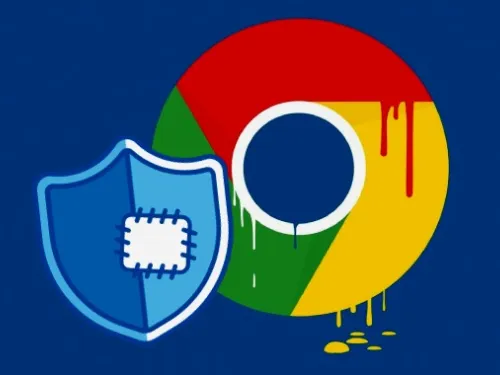
Do you often postpone browser updates? Be aware that, in the case of Google Chrome, putting it off can be a big risk! Recently, an extremely dangerous zero-day vulnerability was discovered, and it is already being used by cybercriminals to attack the computers of ordinary people. In this post, I explain what this threat means, describe how these attacks happen, and offer simple tips to protect yourself.
What is a zero-day vulnerability?
A “zero-day” vulnerability is a security hole discovered by hackers before developers have had time to fix it. This means that as soon as the flaw is known, it starts being exploited to invade computers, steal data, install viruses, and even take control of your PC — all without you noticing.
Examples of attacks that have already happened
To understand, imagine you are browsing peacefully, you enter an apparently normal site, and without realizing it, malicious code uses the vulnerability to install itself on your machine.
- In past zero-day vulnerabilities, hackers have managed to steal passwords saved in the browser, install spyware to record everything you type (keyloggers), and even turn the victim's computer into part of an attack network (botnets).
- Attacks of this type usually happen silently and can come from links received via email, ads on websites, or even files downloaded from unknown sources.
Why is it so important to update now?
Whenever Google discovers such a flaw, the Chrome security team rushes to create and release a fix. But as long as you don't update, your computer remains unprotected, even if you have antivirus or take other precautions.
Updating is quick and easy:
- Click on the three dots in the upper right corner of Chrome.
- Go to “Help” > “About Google Chrome.”
- The browser itself will search for and install the update! Just restart it.
Tips to stay even safer
- Don't postpone updates: Whenever you see the message “Update Chrome,” do it immediately.
- Be wary of links and attachments: Avoid clicking on suspicious emails or messages, even if they seem trustworthy.
- Use strong passwords: And, if possible, enable two-step verification (it makes access more difficult even if your password is leaked).
- Keep your antivirus updated: It doesn't replace, but it enhances protection.
In summary
Zero-day vulnerabilities are serious and can affect anyone. Quickly updating Chrome is the most important step to ensure your safety and avoid headaches. Share this tip with those you care about — digital security is for everyone!
Add new comment